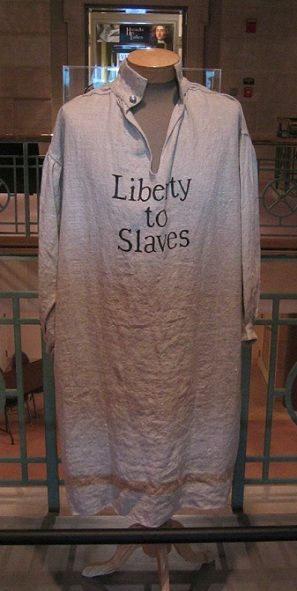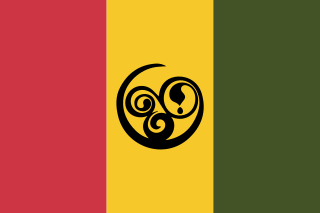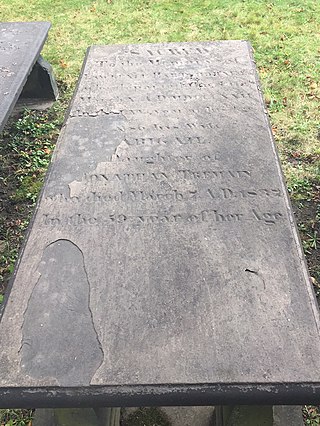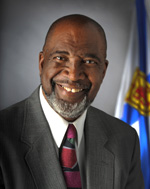Related Research Articles

United Empire Loyalists is an honorific title which was first given by the 1st Lord Dorchester, the Governor of Quebec, and Governor General of the Canadas, to American Loyalists who resettled in British North America during or after the American Revolution. At the time, the demonym Canadian or Canadien was used to refer to the indigenous First Nations groups and the descendants of New France settlers inhabiting the Province of Quebec.

Sherbro Island is in the Atlantic Ocean, and is included within Bonthe District, Southern Province, Sierra Leone. The island is separated from the African mainland by the Sherbro River in the north and Sherbro Strait in the east. It is 32 miles (51 km) long and up to 15 miles (24 km) wide, covering an area of approximately 230 square miles (600 km2). The western extremity is Cape St. Ann. Bonthe, on the eastern end, is the chief port and commercial centre.

Black Loyalists were people of African descent who sided with the Loyalists during the American Revolutionary War. In particular, the term refers to men who escaped enslavement by Patriot masters and served on the Loyalist side because of the Crown's guarantee of freedom.
Thomas Peters, born Thomas Potters, was a veteran of the Black Pioneers, fighting for the British in the American Revolutionary War. A Black Loyalist, he was resettled in Nova Scotia, where he became a politician and one of the "Founding Fathers" of the nation of Sierra Leone in West Africa. Peters was among a group of influential Black Canadians who pressed the Crown to fulfill its commitment for land grants in Nova Scotia. Later they recruited African-American settlers in Nova Scotia for the colonisation of Sierra Leone in the late eighteenth century.

Black Nova Scotians are Black Canadians whose ancestors primarily date back to the Colonial United States as slaves or freemen, later arriving in Nova Scotia, Canada, during the 18th and early 19th centuries. As of the 2021 Census of Canada, 28,220 Black people live in Nova Scotia, most in Halifax. Since the 1950s, numerous Black Nova Scotians have migrated to Toronto for its larger range of opportunities. Before the immigration reforms of 1967, Black Nova Scotians formed 37% of the total Black Canadian population.

David George was an African-American Baptist preacher and a Black Loyalist from the American South who escaped to British lines in Savannah, Georgia; later he accepted transport to Nova Scotia and land there. He eventually resettled in Freetown, Sierra Leone where he would eventually die. With other slaves, George founded the Silver Bluff Baptist Church in South Carolina in 1775, the first black congregation in the present-day United States. He was later affiliated with the First African Baptist Church of Savannah, Georgia. After migration, he founded Baptist congregations in Nova Scotia and Freetown, Sierra Leone. George wrote an account of his life that is one of the most important early slave narratives.
Boston King was a former American slave and Black Loyalist, who gained freedom from the British and settled in Nova Scotia after the American Revolutionary War. He later immigrated to Sierra Leone, where he helped found Freetown and became the first Methodist missionary to African indigenous people.
The Jamaican Maroons in Sierra Leone were a group of just under 600 Jamaican Maroons from Cudjoe's Town, the largest of the five Jamaican maroon towns who were deported by the British authorities in Jamaica following the Second Maroon War in 1796, first to Nova Scotia. Four years later in 1800, they were transported to Sierra Leone.
The Snowball family was a prominent settler Creole family of Nova Scotian descent. The Snowballs were originally African-American slaves from "Princess Ann County, Virginia" and were formerly the property of Richard Murray. Nathaniel Snowball, who was the son of Violet Snowball and the brother of Mary Snowball, was only 12 years old when he was recorded in the Book of Negroes and described as a "fine boy. Formerly the property of Richard Murray of Princess Ann County, Virginia; left him 7 years ago". Nathaniel became a prominent settler and the patriarch of the Snowball family in Settler Town, Sierra Leone.
Moses "Daddy Moses" Wilkinson or "Old Moses" was an American Wesleyan Methodist preacher and Black Loyalist. His ministry combined Old Testament divination with African religious traditions such as conjuring and sorcery. He gained freedom from slavery in Virginia during the American Revolutionary War, was a Wesleyan Methodist preacher in New York and Nova Scotia. In 1791, he migrated to Sierra Leone, preaching alongside ministers Boston King and Henry Beverhout. There, he established the first Methodist church in Settler Town and survived a rebellion in 1800.

Birchtown is a community and National Historic Site in the Canadian province of Nova Scotia, located near Shelburne in the Municipal District of Shelburne County. Founded in 1783, the village was the largest settlement of Black Loyalists and the largest free settlement of ethnic Africans in North America in the eighteenth century. The two other significant Black Loyalist communities established in Nova Scotia were Brindley town and Tracadie. Birchtown was named after British Brigadier General Samuel Birch, an official who helped lead the evacuation of Black Loyalists from New York.

The Nova Scotian Settlers, or Sierra Leone Settlers, were African Americans who founded the settlement of Freetown, Sierra Leone and the Colony of Sierra Leone, on March 11, 1792. The majority of these black American immigrants were among 3,000 African Americans, mostly former slaves, who had sought freedom and refuge with the British during the American Revolutionary War, leaving rebel masters. They became known as the Black Loyalists. The Nova Scotian settlers were jointly led by African American Thomas Peters, a former soldier, and English abolitionist John Clarkson. For most of the 19th century, the Settlers resided in Settler Town and remained a distinct ethnic group within the Freetown territory, tending to marry among themselves and with Europeans in the colony.
John Ball was an African-American Methodist preacher in Shelburne, Nova Scotia. John Ball is recorded in the Book of Negroes as one of the 3,000 African Americans who escaped to the British lines during the American Revolution.
Sierra Leoneans in the United Kingdom are citizens or residents of the United Kingdom who are of Sierra Leonean descent. In 2001, there were 17,048 Sierra Leonean-born residents of the UK.
Abel Nathaniel Bankole Stronge is a Sierra Leonean politician who was Speaker of the Parliament of Sierra Leone from 2007 through November 2013. He is a member of the ruling All People's Congress (APC) and represents the Western Area Urban District. Bankole Stronge succeeded Edmund Cowan of the Sierra Leone People's Party as speaker of Parliament after the 2007 Sierra Leone Presidential and Legislative elections.

Burnley Allan "Rocky" Jones was an African-Nova Scotian and an internationally known political activist in the areas of human rights, race and poverty. He came to prominence first as a member of the Student Union for Peace Action (SUPA) during the 1960s and then as a civil rights activist, community organizer, educator, and lawyer.

During the American Revolution, those who continued to support King George III of Great Britain came to be known as Loyalists. Loyalists are to be contrasted with Patriots, who supported the Revolution. Historians have estimated that during the American Revolution, between 15 and 20 percent of the white population of the colonies, or about 500,000 people, were Loyalists. As the war concluded with Great Britain defeated by the Americans and the French, the most active Loyalists were no longer welcome in the United States, and sought to move elsewhere in the British Empire. The large majority of the Loyalists remained in the United States, however, and enjoyed full citizenship there.

The Sierra Leone Creole people are an ethnic group of Sierra Leone. The Sierra Leone Creole people are descendants of freed African-American, Afro-Caribbean, and Liberated African slaves who settled in the Western Area of Sierra Leone between 1787 and about 1885. The colony was established by the British, supported by abolitionists, under the Sierra Leone Company as a place for freedmen. The settlers called their new settlement Freetown. Today, the Sierra Leone Creoles are 1.2 percent of the population of Sierra Leone.
The Shelburne riots were attacks in July 1784 by landless Loyalist veterans of the American War of Independence against Black Loyalists and government officials in the town of Shelburne, Nova Scotia, and the nearby village of Birchtown. They have been characterized as the first race riots in Canada, and one of the earliest recorded race riots in North America.
Abraham Hazeley (1784–1847) was a Nova Scotian settler in Sierra Leone. He was the founder of what was to become one of the most prominent Creole families in the country.
References
- 1 2 James W. St.G. Walker, Balsillie School of International Affairs
- ↑ Order of Canada announced for History professors Walker and English, University of Waterloo
- ↑ The Black Loyalists: The Search for a Promised Land in Nova Scotia and Sierra Leone, 1783-1870, University of Toronto Press
- ↑ An extended family through Dal’s Transition Year Program, Dalhousie University News, January 9, 2012
- ↑ James Walker, The Osgoode Society for Canadian Legal History